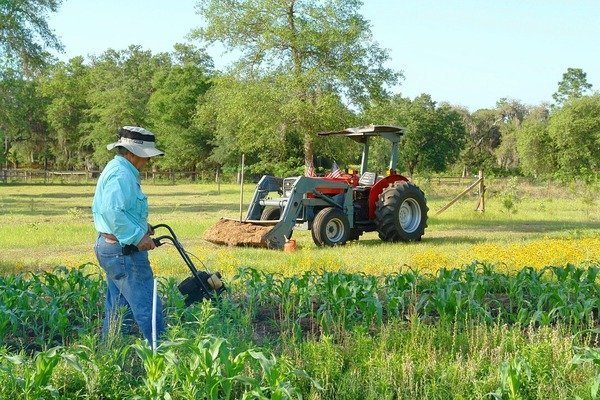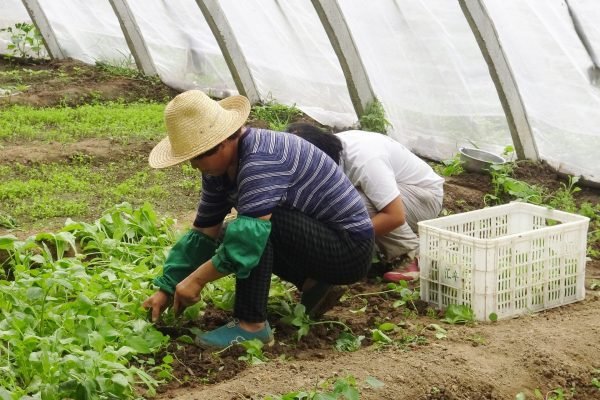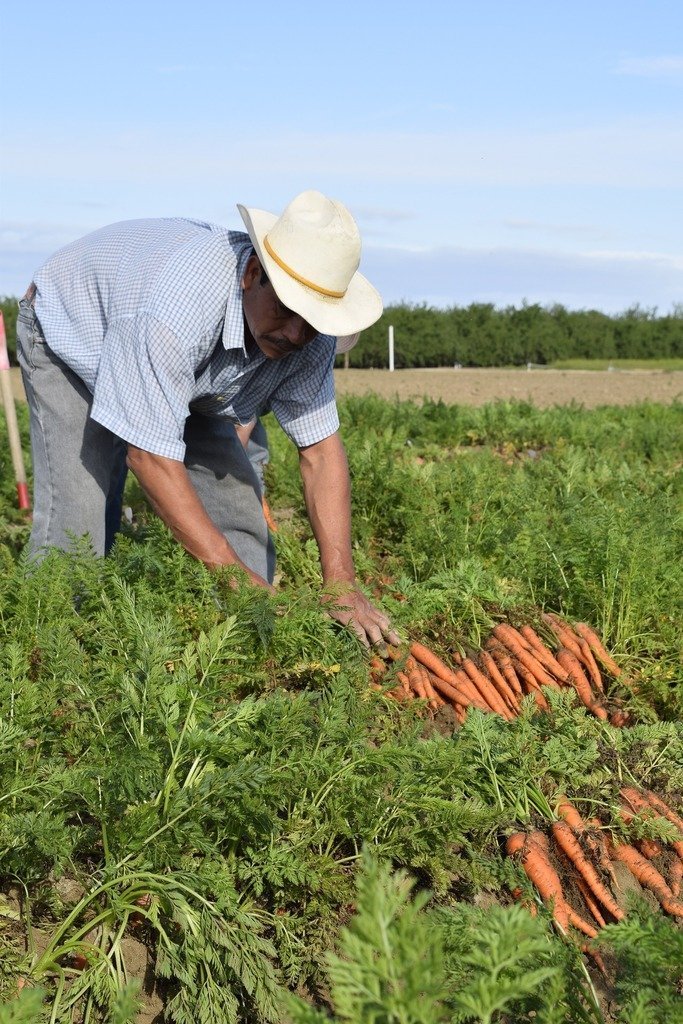Why Is Organic Food More Expensive? – What You Need To Know About
Table of Contents
Organic food is more expensive – but why?
Prices exert a specific signal function in the market and determine consumer behavior. In the case of organic food prices, the consumer does not see the reality behind it. Billions of dollars in tax subsidies and the shift of environmental costs to the general public distort prices.
One thing is sure: The prices in the supermarket do not tell the truth, especially for organic food. Conventional and ecological products are subject to distorted competitive conditions, according to the result of a food watch study.
Let us learn more about what Organic Farming means.
What is Organic Farming?
Organic farming seems for many. A beautiful romantic idea!
Here, you can check your ideas about the profession in the everyday life of a farm.

What is essential for this profession
It means to be outdoors, to move and work a lot, and to like animals; that’s the necessary condition. People who work in agriculture should be weatherproof. They are in the wind, rain, and snow, as well as in the sunshine outdoors. Being outside on the road can quickly become a wet or cold thing.
If possible, you should not have allergies to animal hair, dust, or pollen. Otherwise, working on a farm becomes a torment when pollen is flying in spring. There is a lot to do on such a farm.

The farmer himself has to organize the work. No boss tells him when to do what to work. But the workday is often long. And even on weekends or public holidays, for example. The farmer has to provide and care for the animals, and there is always some urgent work. Sometimes the farmer has no time left for free time.

Also, to mention that bad weather conditions like heat, drought, or flood can take away the whole work of a year. Conventional farmers can have crop insurance, which is often unavailable for organic farmers or more expensive.
Organic farming is something you have to learn.
An organic farmer needs a good knowledge base on various topics like crop production, animal husbandry, and economics. For example, the cultivation of soils, the cultivation of crops, fertilization, harvesting, and proper storage of the harvested crops up to their utilization. Of course, the keeping, feeding, and care of livestock also.
Another important topic in organic farming is the control of quality in the production of organic food. The marketing of agricultural products must also be learned. And the operation and maintenance of the machines and equipment on the farm. An organic farmer has to be a good mechanic, as well. The repair of equipment can cost a fortune. Do not forget the planning and implementation of the processes on the farm.

The unique thing about the profession of organic farming
Organic agriculture focuses on the harmony of soil, animals, and plants. Organic food usually contains less residue, and consumers appreciate it.
Just over three-quarters of all consumers at least occasionally buy organic food. There are many reasons for this: organic customers want healthy, low-residue food for themselves and their children.
They want to support animal welfare and regional organic farmers. Organic farming, as a contribution to environmental and climate protection, also plays an essential role as a buying motive. But are natural products better in quality than traditional ones?
BUT: Organic vegetables and organic fruits are truly healthier!
Organic promotes the balance between soil, animals, and plants.
In organic farming, much is left out of conviction, which is permitted by law and may be used in the conventional field to increase economic efficiency. The goal of many committed organic farmers is to create a closed-loop economy as far as possible. Ideally, this means keeping only as many animals as the yield of their fields can feed. Besides, the farmer has to manage the soil sustainably so that they are still fertile enough for our offspring.

Organic Farmers rely on prevention.
Chemical-synthetic fertilizers and pesticides are prohibited in organic farming. Instead, the farmers fertilize with manure and vegetable compost. The regular cultivation of legumes as a catch or cover crop naturally enriches the soil with nitrogen.
To have fertile fields and healthy plants, organic farmers rely on prevention: They prefer varieties that are adapted to a specific location and climate and, thus, less susceptible to diseases and pests. Also, organic seeds are more expensive than conventional seeds.
It is important to keep the soil healthy to produce healthy food
From agriculture, we receive various and indispensable products. It is essential to make food healthy and to keep the soil healthy. Environmentally friendly, resource-saving, and sustainable use of earth, air, water, plants, and animals, as well as machinery and equipment, is what makes organic farming so unique.
Organic vegetables and organic fruits are not more expensive, but in the end, even cheaper, with only low yield reduction.
We all know that consumer prices of organically grown fruits and vegetables are higher than those of conventional foods. The consumer may, first of all, have a look at the price in the eye when shopping. But does he also know that this is not real?
The point is this: “Conventional” agriculture burdens us all with follow-up costs and kills immense resources of the “Third World” and future generations.
But we can not see this balance sheet item, which is not visibly included in the price. What would the cost of food be if we would take this reality into account? And finally, if we would take the follow-up costs of pesticide poison cocktail farming into account, then organic would not be more expensive!
Do we not have to suffer because the yield of Organic Farming is lesser?
It’s true that the yield of crops would be a bit lower. Estimates based on studies this reduction is up to a maximum of 20%. This loss may be lower for some types of fruit and vegetables. But it can be compensated if only another urgent requirement of environmental associations is realized: the reduction of meat consumption.
Meat production needs enormous resources of energy and vegetable feed. These resources the companies import to a large extent from the “Third World,” like soy, for example. Many people are starving there. To produce one calorie in the form of animal food, you need an average of seven calories of vegetable food.
Organic Works> Organic For All
“Everyone has the right to clean, organic food. That is a human right.” – Tara, a study participant in Baltimore.
Read the article of Jennifer Chait below as well
10 Reasons Organic Food Costs More
Recent polls show that most Americans think organic food isn’t worth the cost, mainly because many consumers think organics are the same as conventional items, simply with a fancy organic label attached.
However, there are actual differences between organics and conventional food. There are also some significant and very real reasons why organics can be expensive.
Here are the top 10 reasons organic food costs more.
1. Time Requirements

Much of organic pricing can be attributed to time issues. Time is money, after all, and organic growers spend a lot more time on their crops than conventional growers. The Organic Farming Research Foundation notes that: “The organic price tag more closely reflects the true cost of growing the food [including] substituting labor and intensive management for chemicals, growing, harvesting, transportation, and storage.”
Because organic growers don’t use the same amounts of harmful pesticides on their crops, they have to look for other, often manual, methods of controlling pests and diseases. These methods keep pesticides out of people and the environment, but they do cost more. There’s also ongoing education for organic growers, the certification process, paperwork, inspections, planning and more that are factored into the organic grower’s schedule.
Organic foods derived from animals cost more than their conventional counterparts for the same reasons. There is more hands-on care required for organic livestock. All this costs money, of course.
2 Organic Certification
![]()
Organic certification, as noted above, is time-consuming, but it’s also flat-out expensive for many growers and handlers. Not only are first-time certification costs steep, averaging around $700 to $1,200 per operation but there are other certification costs involved as well. Some of the major certification costs include renewal certification costs, education, suitable organic land, livestock from organic origins, organic seed, and special processing equipment.
3 Special Facilities
From growers to processors, most organic certified operations need special land and/or facilities before they can produce food. Organic land costs much more than conventional farmland because there’s a long list of qualities that organic land must possess. This applies to organic land used for crops or livestock.
On top of land issues, many organic operations are so small that they don’t warrant a full-scope manufacturing facility of their own. This means either locating an organic operation with which they can share space or purchasing special equipment for a conventional facility. If an organic company shares space with a conventional company, more time must be spent making sure that products aren’t mixed, or if they are mixed, that processing machines are properly cleaned before they’re used for organics.
Hopefully, this does answer the question of why organic is expensive. Is it really?
We are what we eat. What we eat is becoming our body. Is there something more important than a healthy body?
“It is health that is real wealth and not pieces of gold and silver.”-Mahatma Gandhi.
“The wise man should consider that health is the greatest of human blessings. Let food be your medicine.”.-Hippocrates
“The preservation of health is a duty. Few seem conscious that there is such a thing as physical morality”.- Herbert Spencer.
“He who has health has hope, and he who has hope has everything.”-Thomas Carlyle.
If you want to learn more about organic farming, visit Vandana Shiva’s website Navdanya
Read also > Is Organic Food Worth the Cost?
See also Vitamin B12 Myths – Can humans produce vitamin B12 in the gut?




